Module name Kirchhoff PreSTM file in/out - migration
An example migration workflow in g-Platform. The first part is to create CIGs followed by creating the PSTM stack.
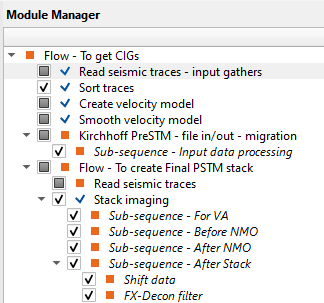
One of the key parameter in the migration is Aperture. So the first testing parameter of any processor is to find an optimum migration aperture. In g-Platform the user can do the migration aperture test in two ways.
Method 1- Read the stack and do a post stack migration by using Kirchhoff PreSTM - gather in/out - migration module.
Method 2 - Select a single CDP (preferably center CDP) and test the aperture using Kirchhoff PreSTM - gather in/out - migration module.
In this example we are going to discuss about the second method of migration aperture testing.
An example workflow to do the aperture testing is as shown below.
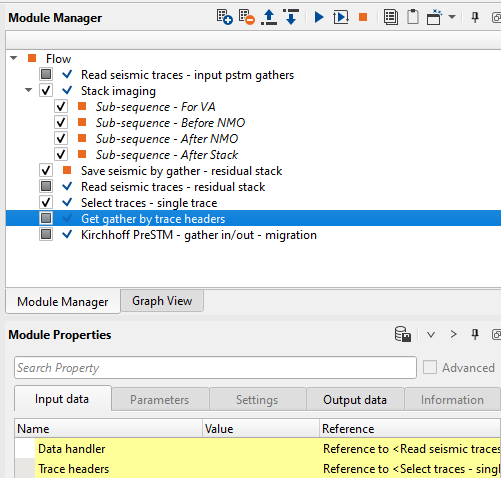
In the above workflow, we would like to emphasize on Get gather by trace headers module. This modules generates output gather based on the trace headers. So if we observe the input data tab, Data handler is connected/referenced to "Read seismic traces - residual stack" and the Trace headers from Select traces module where we have selected a single trace. The output from the Get gather by trace headers module will be referenced as an input to the Kirchhoff PreSTM - gather in/out - migration module.
When we launch the vista items, we have input and output vista items from the Kirchhoff PreSTM - gather in/out - migration module.
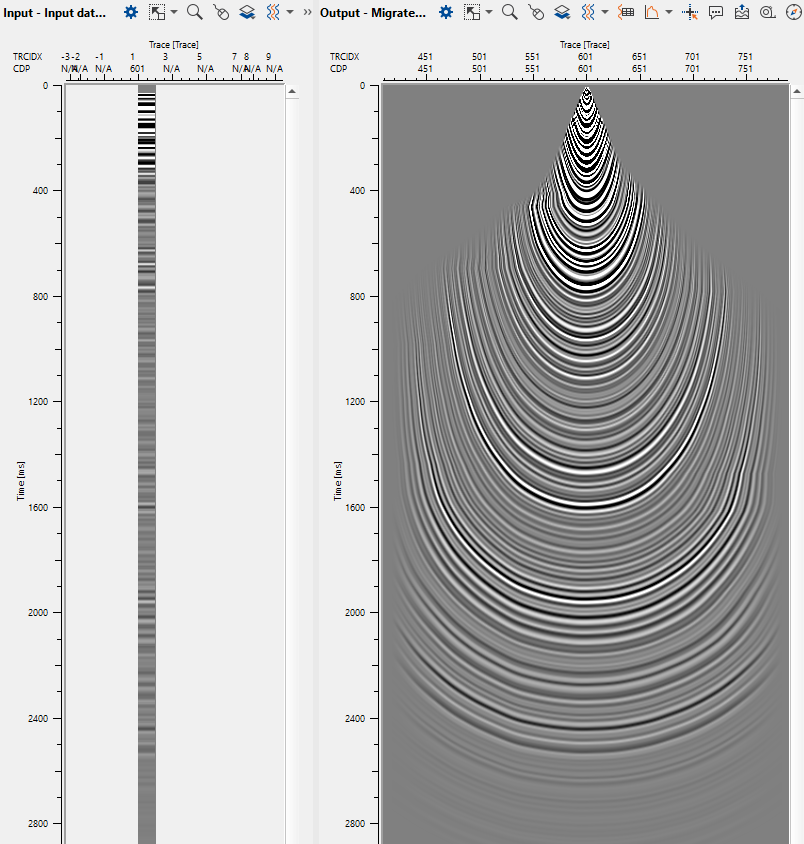
For Prestack Migration, we need CMP gathers. Kirchhoff PreSTM file in/out - migration runs in offset classes. Following are the Input requirements for Kirchhoff PreSTM file in/out - migration module and Settings to run the migration either in standalone or parallel/cluster mode. Our migration algorithm can be executed in both CPU and GPU clusters.
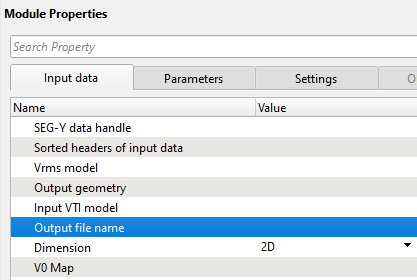
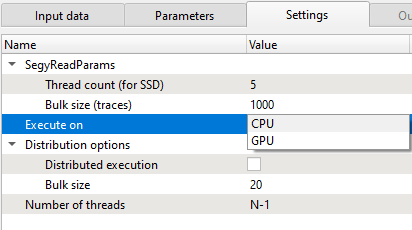
In the Input data tab, the user make the necessary data references/connections to the respective input data items. At the Output file name, we should provide the output file name. This will generate the Kirchhoff PreSTM CIG/CAG gathers as per the user defined parameters.
Parameters:
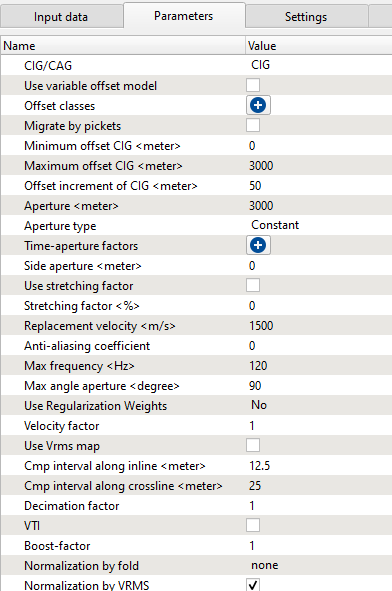
From the parameters, we would like to put some emphasis on some of them.
CIG/CAG The final output migrated gathers. User can select any one of them as their output gathers. By default CIG.
Offset classes Define the offset classes here by clicking on the ![]() . It will open a table. Provide the From value, To value and Step size.
. It will open a table. Provide the From value, To value and Step size.
Migrate by pickets This option is can be used when it is a straight line.
Aperture type We have two options here. Constant & Time variant. The user can choose among them. Constant aperture is by default.
Replacement velocity As we mentioned earlier, g-Platform runs the migration from topography so the user must provide the replacement velocity.
Calculating the Bulk size in Settings tab:
It is an important step while executing the migration algorithm either in standalone or cluster environment. For a better turn around time, we should get an optimum bulk size. Here is the method to calculate the bulk size.
Memory parameters:
Total RAM (TR) = 16 GB
Total RAM Available (TRA) = 10 GB (10737418240 bytes)
Input data parameters:
Number of samples 2000
Minimum OFFSET 0 meter
Maximum OFFSET 10000 meters
Step size of OFFSET 200 meters
To calculate the total number of traces in one CIG.
TCIG = (Max OFFSET - Min OFFSET)/Step OFFSET
(10000 - 0)/200 = 50
Now we need to calculate the Size of a one CIG (SCIG). This should be done by
SCIG = TCIG * Number of Samples * 4 bytes
50 * 2000 * 4 = 400000 bytes
Maximum bulk size
TRA/ SCIG = 10737418240/400000 = 26843.5456
We should consider a bulk size of 26000 as a round of.
Migrated Stack creation:
After getting the output CIG/CAG gathers, the user can use Stack Imaging module to generate the migrated stacks. Please make a note of it that the data is already NMO corrected and we don't require any additional NMO correction in Stack Imaging module.